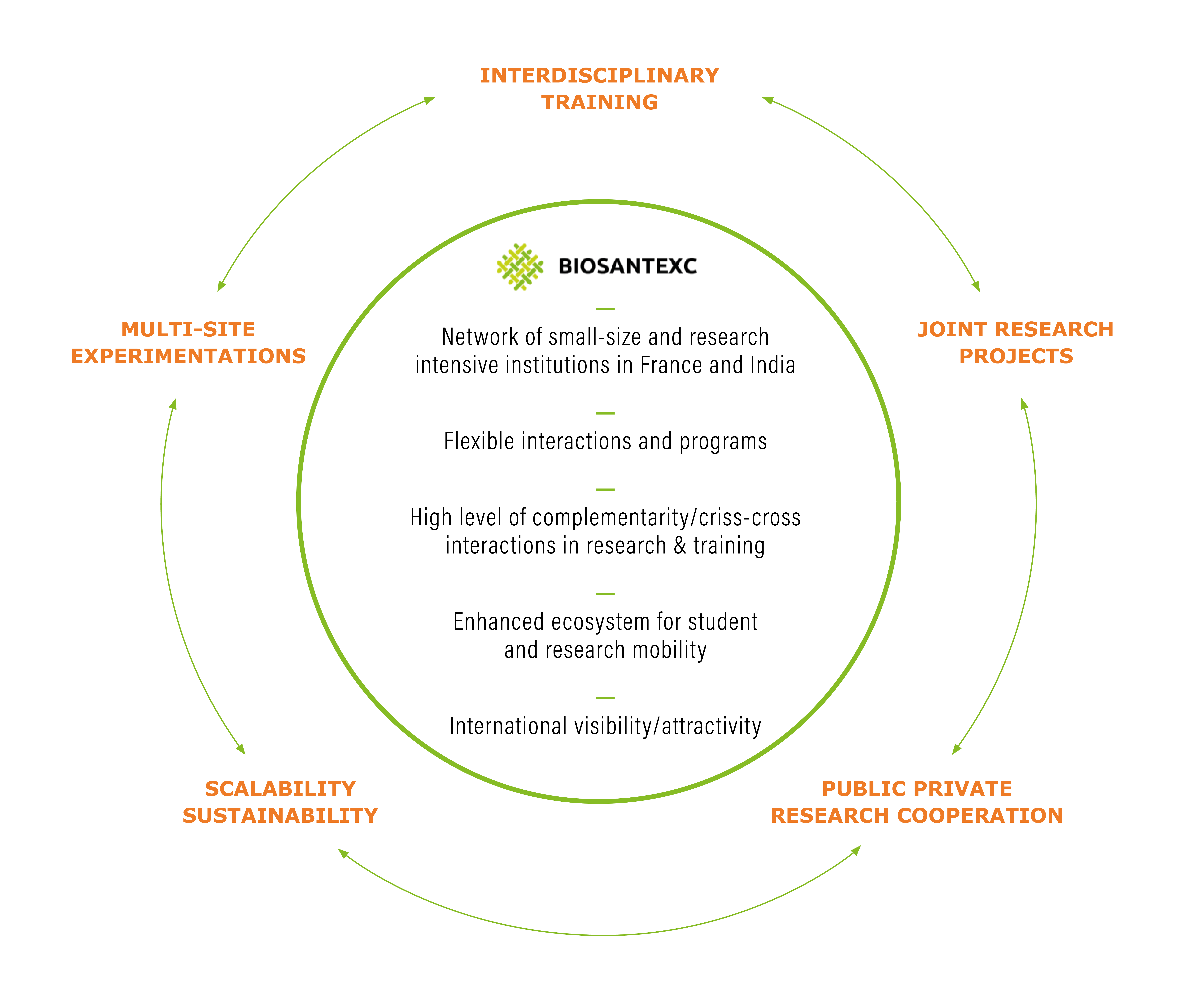
The Biosantexc project is one of the four winners of the call for projects launched by the Ministry of Europe and Foreign Affairs in partnership with the Ministry of Higher Education and Research, for the creation of a Franco-Indian campus in life sciences for health.
The Biosantexc consortium is led by ENS de Lyon.
Integrated Research Oriented Training Network in Life Sciences through Interdisciplinary Approaches
Biosantexc (BSX) is a project originating from the Franco-Indian partnership between the four ENS in France and the six IISERs in India, two nationwide research-oriented networks of excellence in training and research.
As such the ENS and IISER institutions are at the forefront of issues related to societal challenges in terms of health (infectious diseases, cancer, neurosciences, genomics, ecology, bioinformatics, sports sciences, social sciences...). Therefore, they developed close links with their respective national research organizations.
Through the Biosantexc project they wish to train future specialists with intercultural skills and capable of working in a bilateral or multilateral framework throughout their career. In order to establish a sustainable program where research and training are closely linked and mutually nourishing, while reinforcing Franco-Indian ties, the ENS-IISER network has partnered with leading institutes in Health and Social Sciences to provide a broad coverage of the field of Health Sciences and associated challenges.
Territorially ambitious, this ecosystem will have sufficient critical size to offer relevant complementarities to develop scientific cooperation in various sub-disciplines and to stimulate interdisciplinary approaches.

The objective of the project, in its initial two-year funding phase, is to develop scientific cooperation and joint training at master’s and PhD level within a Franco-Indian network of excellence. For this, and in addition to their previous partnership experience, Biosantexc members propose creating an "adaptive and flexible" network that has a sufficiently critical size so that researchers and doctoral students can find interconnected links in both training and research. They also rely on the connection between human sciences and life sciences to stimulate projects on the concept of "One Health", global health. Finally, the whole project is based on a common approach to training both through and for research by using interdisciplinary approaches.
The long-term objectives are:
- Establishing a sustainable program where research and training are closely linked and mutually nourishing
- Reinforcing Franco-Indian ties by training future specialists (scientists /decision-makers in private and public research in France and India) with a Franco-Indian intercultural competence and capable of working together in a bilateral or multilateral framework throughout their career
- Gaining visibility for an influence and attractiveness extended to the Indo-Pacific area






